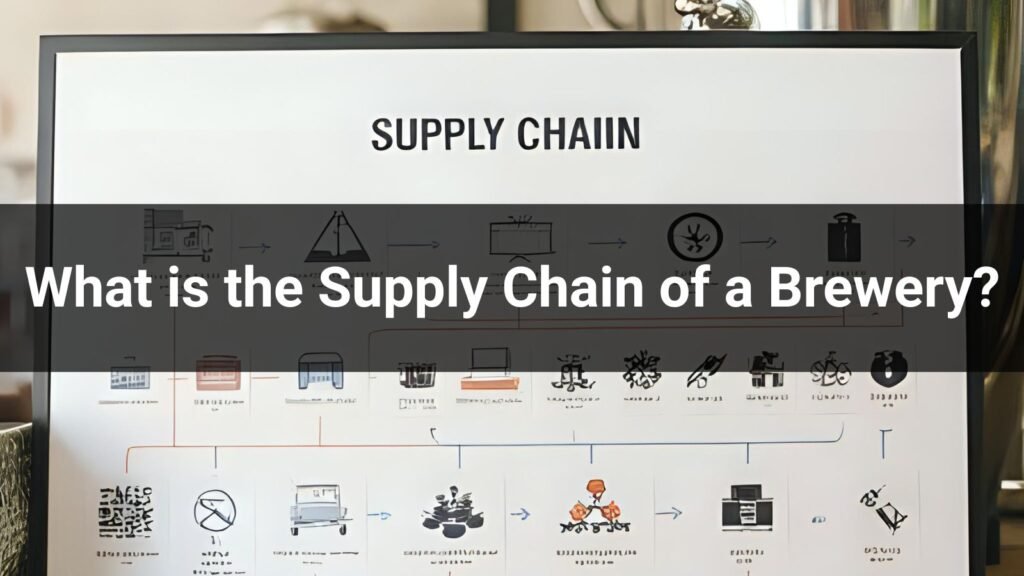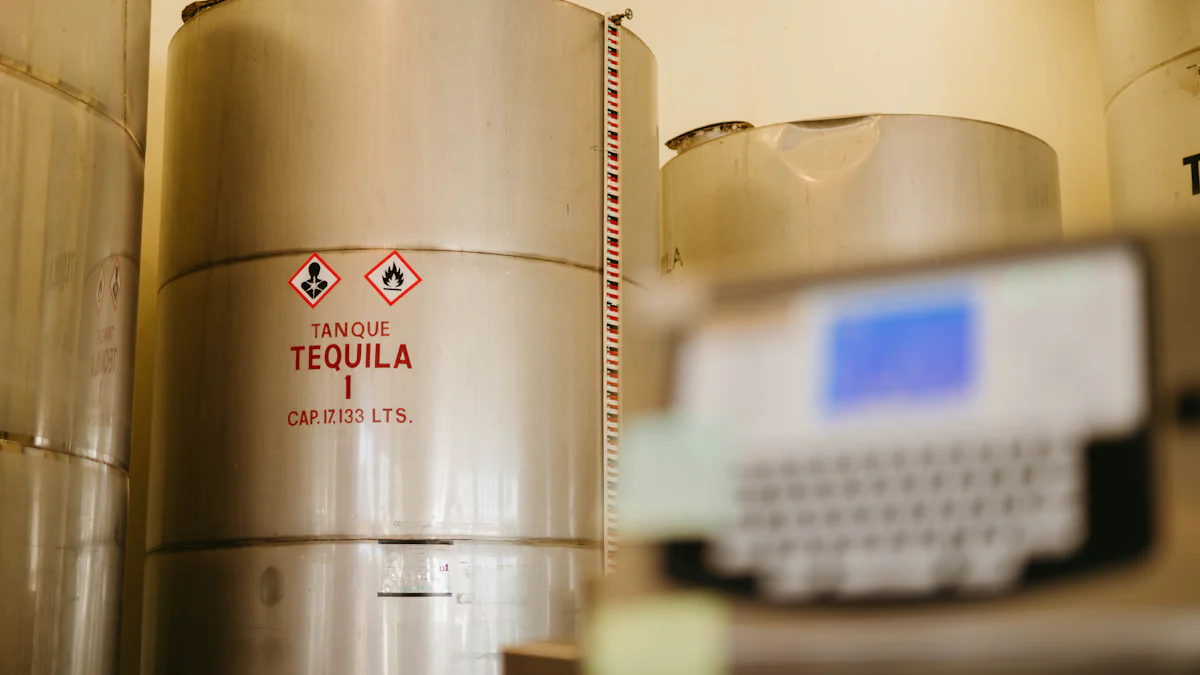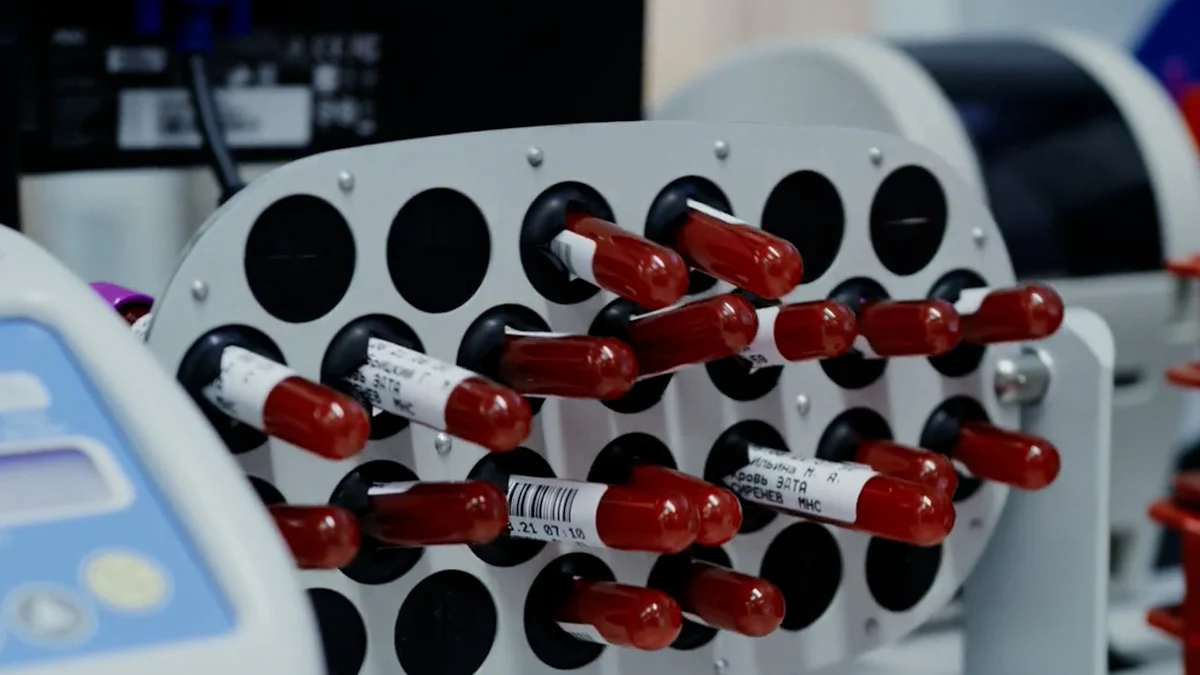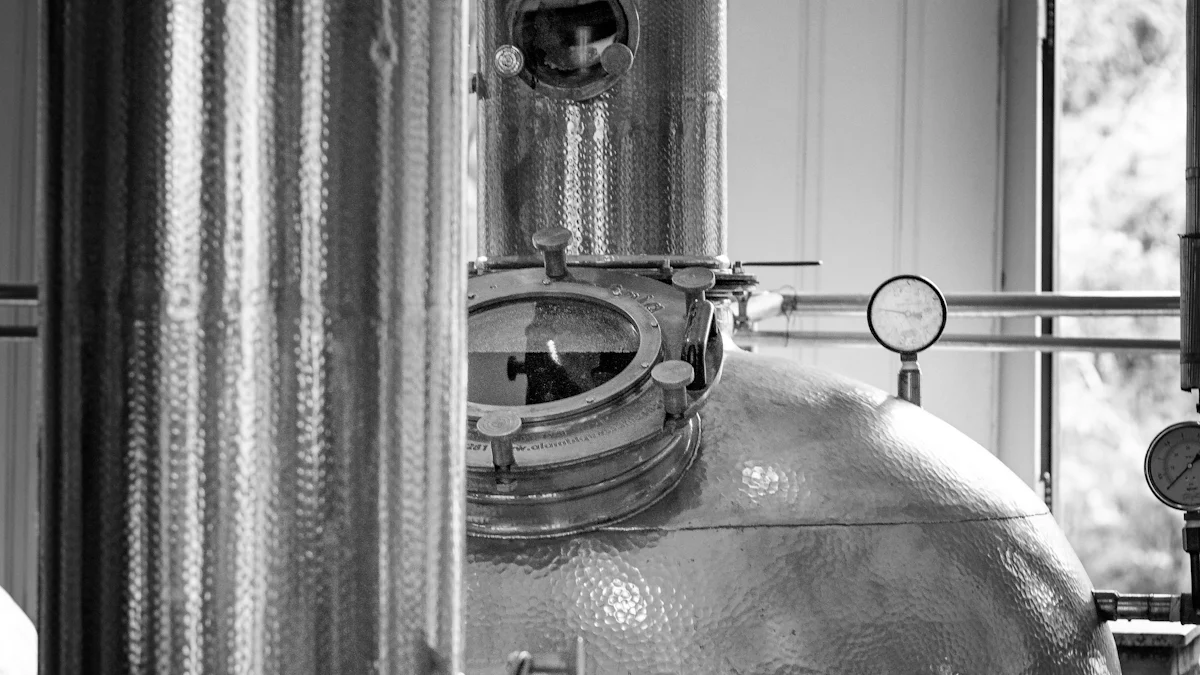
The beer industry’s success relies heavily on an intricate network of suppliers, manufacturers, and distributors
working in harmony. Understanding the brewery supply chain is crucial for brewery owners, investors, and
industry professionals looking to optimize operations, reduce costs, and ensure consistent product quality. This
comprehensive guide explores every aspect of the brewery supply chain, from raw material sourcing to final
product delivery, while highlighting how modern equipment manufacturers like Shandong Chenma Machinery support
this complex ecosystem.
Table of Contents
- Understanding the Brewery Supply Chain
- Raw Materials Procurement
- Equipment Manufacturing and Supply
- Brewing Process and Logistics
- Packaging and Distribution Networks
- Quality Control and Compliance
- Supply Chain Challenges and Solutions
- Technology and Supply Chain Optimization
- Future Trends in Brewery Supply Chains
Understanding the Brewery Supply Chain
The brewery supply chain encompasses all activities involved in transforming raw materials into finished beer
products and delivering them to consumers. This complex network includes multiple stakeholders, from
agricultural producers to equipment manufacturers, logistics providers, and retail partners.
At its core, the brewery supply chain consists of several interconnected stages:
| Supply Chain Stage | Key Components | Primary Stakeholders |
|---|---|---|
| Raw Material Sourcing | Hops, malt, yeast, water, adjuncts | Farmers, maltsters, hop growers |
| Equipment Supply | Fermentation tanks, brewing systems, packaging equipment | Equipment manufacturers, engineering firms |
| Production | Brewing, fermentation, conditioning | Brewery operations, quality control teams |
| Packaging | Bottles, cans, kegs, labels | Packaging suppliers, printing companies |
| Distribution | Transportation, warehousing, logistics | Distributors, logistics providers, retailers |
Understanding these interconnections is vital for brewery operators seeking to optimize their operations. Each
stage requires careful coordination to ensure product quality, cost efficiency, and timely delivery to market.
Raw Materials Procurement
Raw material procurement forms the foundation of any successful brewery operation. The quality, consistency, and
availability of ingredients directly impact the final product’s taste, aroma, and overall quality.
Water Management: Water accounts for approximately 90-95% of beer’s composition, making it the
most critical ingredient. Breweries must establish reliable water sources and often invest in water treatment
systems to achieve consistent mineral profiles. Many successful breweries develop long-term partnerships with
municipal water suppliers or invest in private wells with appropriate filtration systems.
Malt Sourcing: Malted barley provides the fermentable sugars essential for alcohol production.
Breweries typically source malt from specialized maltsters who process raw barley through controlled germination
and kilning processes. Establishing relationships with multiple malt suppliers helps ensure consistent supply
and pricing stability throughout seasonal fluctuations.
Hop Procurement: Hops contribute bitterness, flavor, and aroma to beer while acting as natural
preservatives. The hop market can be volatile, with prices fluctuating based on weather conditions, demand, and
geographical factors. Many breweries enter into forward contracts with hop growers to secure supply and pricing
for multiple years.
Yeast Management: Yeast converts sugars into alcohol and carbon dioxide during fermentation.
Breweries often maintain their own yeast cultures or source from specialized yeast laboratories. Proper yeast
handling and storage are crucial for maintaining fermentation consistency and product quality.
Equipment Manufacturing and Supply
The equipment manufacturing sector plays a pivotal role in brewery supply chains, providing the specialized
machinery necessary for beer production. Companies like Shandong Chenma Machinery Co., Ltd.
exemplify how equipment manufacturers support the brewing industry through innovative stainless steel tank
solutions and comprehensive technical services.
Located in Shandong Province, China, Chenma Machinery represents the evolution of brewing equipment
manufacturing. With over 200 professionals working in a 20,000 m² production facility, the company demonstrates
how modern manufacturers scale operations to meet growing global demand for brewery equipment.
Fermentation Tank Manufacturing: Stainless steel fermentation tanks are critical components in
any brewery operation. These vessels must meet strict hygiene standards while providing precise temperature
control and pressure management. Understanding the different
types of industrial stainless steel tanks helps breweries select appropriate equipment for their
specific needs. Chenma Machinery’s state-of-the-art production capabilities enable the manufacturing of even the
most technically demanding designs, ensuring breweries receive equipment that meets their specific operational
requirements.
Custom Engineering Solutions: Modern breweries often require customized equipment solutions to
optimize their unique production processes. Experienced manufacturers like Chenma provide complete turnkey
projects, including process design, equipment manufacturing, installation, commissioning, and technical
training. For breweries looking to understand what mixing tanks
are and their various types, proper selection is crucial for maintaining consistent product quality.
This comprehensive approach helps breweries minimize startup times and operational risks.
Quality Certifications: Equipment manufacturers must maintain rigorous quality standards to
serve the brewing industry effectively. Chenma Machinery’s certifications include ISO9001-2005 quality system
certification, ISO14001-2015 environmental management system certification, OHSAS18001-2007 occupational health
management system certification, and EU CE certification. These certifications demonstrate commitment to
quality, environmental responsibility, and worker safety.
Brewing Process and Logistics

The brewing process itself requires careful coordination of materials, equipment, and personnel to maintain
consistent production schedules and quality standards. Modern breweries implement sophisticated planning systems
to optimize production efficiency while maintaining flexibility for seasonal variations and special releases.
Production Planning: Effective production planning involves forecasting demand, scheduling raw
material deliveries, and coordinating equipment maintenance. Breweries must balance production capacity with
market demand while maintaining sufficient inventory levels to meet customer expectations.
Inventory Management: Raw material inventory management requires balancing holding costs with
supply security. Ingredients like hops and specialty malts may have limited availability windows, requiring
strategic purchasing decisions. Additionally, finished goods inventory must be managed to ensure product
freshness while meeting distribution demands.
Cold Chain Management: Many beer styles require temperature-controlled storage and
transportation to maintain quality. Breweries must establish cold chain logistics from production through final
delivery, working with specialized logistics providers equipped with refrigerated transportation and storage
capabilities.
Packaging and Distribution Networks
Packaging and distribution represent significant cost centers in brewery operations while directly impacting
product presentation and market reach. Successful breweries develop comprehensive packaging strategies that
balance cost, sustainability, and market positioning.
Packaging Format Selection: Breweries must choose appropriate packaging formats based on target
markets, distribution channels, and brand positioning. Options include bottles, cans, kegs, and specialty
packaging. Each format requires different equipment, materials, and logistics considerations.
| Packaging Format | Advantages | Considerations |
|---|---|---|
| Glass Bottles | Premium perception, UV protection, recyclable | Higher weight, breakage risk, higher costs |
| Aluminum Cans | Lightweight, quick cooling, portable | Light exposure, metallic taste perception |
| Kegs | Freshness, cost-effective for volume | Requires specialized handling, limited consumer access |
Distribution Channel Management: Breweries must develop appropriate distribution strategies
based on their size, market focus, and growth objectives. Options range from self-distribution for local markets
to partnerships with regional or national distributors for broader reach.
Logistics Optimization: Efficient logistics management involves optimizing transportation
routes, consolidating shipments, and coordinating with distribution partners. Technology solutions help
breweries track shipments, monitor inventory levels, and optimize delivery schedules.
Quality Control and Compliance
Quality control and regulatory compliance are integral components of brewery supply chain management. Breweries
must maintain consistent product quality while adhering to complex regulatory requirements across multiple
jurisdictions.
Raw Material Testing: Quality control begins with incoming raw material inspection and testing.
Breweries implement sampling protocols and laboratory testing procedures to verify ingredient specifications and
identify potential quality issues before production begins.
Process Monitoring: Throughout the brewing process, quality control teams monitor critical
parameters including temperature, pH, dissolved oxygen, and microbiological indicators. Modern brewing equipment
often includes integrated monitoring systems that provide real-time data and automated alerts for deviations.
Understanding brewing
tanks and fermenters design principles is essential for maintaining consistent fermentation conditions
and product quality.
Finished Product Testing: Completed beer undergoes comprehensive testing before packaging and
distribution. Testing protocols typically include sensory evaluation, alcohol content verification,
microbiological analysis, and package integrity testing.
Regulatory Compliance: Breweries must comply with regulations governing alcohol production,
labeling, taxation, and distribution. Compliance requirements vary by jurisdiction and may include licensing,
reporting, and inspection requirements. Effective compliance management requires ongoing monitoring of
regulatory changes and coordination with legal and regulatory experts.
Supply Chain Challenges and Solutions
Modern brewery supply chains face numerous challenges that require strategic planning and innovative solutions.
Understanding these challenges helps brewery operators develop resilient supply chain strategies.
Price Volatility: Raw material prices can fluctuate significantly due to weather conditions,
market speculation, and global economic factors. Breweries address price volatility through forward contracting,
diversified sourcing, and flexible recipe formulations that allow ingredient substitutions when economically
advantageous.
Supply Disruptions: Natural disasters, transportation strikes, and geopolitical events can
disrupt supply chains. Successful breweries develop contingency plans including alternative suppliers, safety
stock policies, and flexible production scheduling to minimize disruption impacts.
Seasonal Variations: Beer consumption patterns often follow seasonal trends, creating demand
spikes that stress supply chain capacity. Breweries address seasonality through demand forecasting, production
planning, and strategic inventory management.
Sustainability Requirements: Growing consumer and regulatory focus on sustainability drives
breweries to evaluate their entire supply chain’s environmental impact. Solutions include local sourcing
initiatives, packaging optimization, waste reduction programs, and renewable energy adoption.
Technology and Supply Chain Optimization
Technology adoption is transforming brewery supply chain management, enabling more efficient operations, better
decision-making, and improved customer service. Forward-thinking breweries invest in technology solutions that
provide competitive advantages.
Enterprise Resource Planning (ERP) Systems: Comprehensive ERP systems integrate all aspects of
brewery operations, from raw material procurement through finished goods distribution. These systems provide
real-time visibility into inventory levels, production schedules, and financial performance.
IoT Integration: IoT sensors and devices provide real-time monitoring of equipment performance,
environmental conditions, and product quality. For example, modern fermentation tanks equipped with IoT sensors
can automatically monitor and adjust temperature, pressure, and other critical parameters. Breweries considering
equipment upgrades should explore the top beer fermentation
tanks available for 2025 to understand the latest technological advances in brewing equipment.
Predictive Analytics: Advanced analytics help breweries forecast demand, optimize inventory
levels, and predict equipment maintenance needs. Machine learning algorithms can identify patterns in historical
data to improve decision-making accuracy.
Blockchain Technology: Some breweries are exploring blockchain applications for supply chain
transparency and traceability. Blockchain can provide immutable records of ingredient sourcing, production
processes, and distribution activities.
Future Trends in Brewery Supply Chains
The brewery industry continues evolving, driven by changing consumer preferences, technological advancement, and
sustainability concerns. Understanding emerging trends helps breweries prepare for future challenges and
opportunities.
Local Sourcing Movement: Consumers increasingly value locally-sourced ingredients and products.
This trend drives breweries to develop relationships with local farmers, maltsters, and hop growers, creating
more resilient regional supply networks.
Circular Economy Principles: Breweries are adopting circular economy approaches that minimize
waste and maximize resource utilization. Examples include spent grain programs for animal feed, water recycling
systems, and packaging take-back programs.
Direct-to-Consumer Distribution: E-commerce platforms and direct-to-consumer shipping are
changing traditional distribution models. Breweries are investing in online sales capabilities and direct
shipping infrastructure to reach consumers directly.
Automation and Robotics: Increasing labor costs and worker shortages drive automation adoption
throughout brewery supply chains. Automated packaging lines, robotic palletizing systems, and autonomous
vehicles are becoming more common in brewery operations. Breweries must also understand how stainless
steel tanks make food processing safer and easier when implementing automated systems that require
consistent sanitation standards.
For breweries looking to optimize their supply chain operations or establish new production facilities,
partnering with experienced equipment manufacturers like Shandong Chenma Machinery Co., Ltd.
provides access to cutting-edge technology and comprehensive support services. Located in Pingyuan County
Economic Development Zone, Dezhou City, Shandong Province, Chenma offers complete turnkey solutions from initial
process design through equipment installation and technical training.
To learn more about how Chenma Machinery can support your brewery supply chain optimization, contact them via
WhatsApp at 008618063421809 or email at admin@sdchenma.com. Their team of experienced engineers can help design
custom solutions that meet your specific operational requirements while ensuring compliance with international
quality and safety standards.
The brewery supply chain’s complexity requires careful planning, strategic partnerships, and continuous
optimization. By understanding each component of the supply chain and investing in appropriate technology and
partnerships, breweries can build resilient operations that deliver consistent quality products to satisfied
customers. Success in today’s competitive brewing industry depends on supply chain excellence that balances cost
efficiency, quality assurance, and customer satisfaction.
Contact Shandong Chenma Machinery Co., Ltd.
Ready to optimize your brewery supply chain with professional equipment solutions? Shandong Chenma
Machinery Co., Ltd. offers comprehensive support for breweries worldwide, from initial consultation
to complete system installation and training.
Our experienced team can help you design custom fermentation systems, select appropriate stainless steel tanks,
and implement turnkey solutions that meet your specific operational requirements while ensuring compliance with
international quality and safety standards.
Get in touch with our experts today:
- WhatsApp: 86 180 6342 1809
- Email: admin@sdchenma.com
- Address: Pingyuan County Economic Development Zone, Dezhou City, Shandong Province, China
Whether you’re planning a new brewery, expanding existing operations, or upgrading your fermentation equipment,
our team is ready to provide expert guidance and reliable solutions tailored to your brewery’s unique supply
chain needs.



